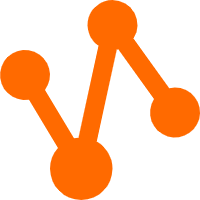Developments in medical sciences have improved average human life expectancy over the years. Technological improvements have also made a significant improvement in processing, storage, and distribution of life-saving medicines. However, very few of the developing countries offer universal health care. Furthermore, healthcare services is not evenly distributed to the public and access to quality healthcare comes with high costs.
Artificial Intelligence (AI) has the potential to cut-down treatment costs by as much as 50%, and improve medical treatment outcomes by 30% to 40%, according to a report by Frost and Sullivan. But, before we start discussing AI advancements in the healthcare industry, it is important to understand what the technology is and why it is making so much hype. For the uninitiated, AI is an umbrella term for a range of technologies such as machine learning, cognitive computing, deep learning, neural networks, and natural language processing. The end goal of all these technologies is to impart "smartness" to computers so that they can behave in a manner akin to humans, or even better.
It is common knowledge that computers are adept at mathematical calculations. However, AI takes this ability to the next level. AI makes computers capable of complex human tasks such as understanding facial expressions, reading information in visuals/images, and using heuristics to find approximate solutions.
So how does all this help doctors? Let's take the example of machine learning. Machine learning is a branch of AI in which computers analyze vast of amounts of data to learn and improve from experience. Researchers are now using different machine learning approaches to create systems that can predict, prevent, or even cure diseases. Unlike traditional software systems, machine learning attempts to do all this with minimal human intervention. This not only reduces manual work but also reduces human errors and biases.
As the medical industry is facing a shortage of lab technicians, AI-based applications can also help by filling the void. Such intelligent applications can help in creating pathological reports by analyzing X-rays, CT scans, blood samples, and other medical tests. These systems can perform routine tasks with higher speed and accuracy.
Another major area where AI is making a huge impact is pharmaceutical research and development. Clinical trials and drug approvals usually cost billions of dollars and decades of research to pharmaceutical companies. With AI, these processes can be made faster and more cost-efficient. AI can help researchers find the most suitable drugs for specific treatments by making accurate probabilistic models to predict the outcome of each treatment.
Artificial Intelligence can also increase the accuracy of diagnosis and treatment of patients. In conventional practices, medical diagnosis is still not a perfect science. It is not uncommon for doctors to provide different treatment plans on evaluating a single patient. By analyzing historical data extensively, accurate diagnosis can be made by simply measuring a patient's vital signs.
To expedite AI research in the healthcare industry, Google is supporting several AI-based healthcare startups through its accelerator platform Launchpad Studio. These startups are receiving development support such as datasets and testing environments for prototyping, and guidance from Google's mentors. Apart from Google's batch of medical AI startups, there are numerous other AI-based startups that have gained popularity in the recent times.
Let's now see how Alibaba is making significant contributions in the medical and healthcare space in China.
In recent years, China has invested heavily in artificial intelligence, aiming to be a world-leader in AI by 2025. The Chinese government recently set aside $2.12 billion for development of an AI technology park near Beijing. This park will promote firms working in the field of big-data, deep learning, and cloud computing. While China has only recently started pushing AI research and development work, firms like Alibaba Cloud have already made significant progress in developing AI-driven applications for the medical industry.
These developments are significant for improving the state of healthcare in China. According to the World Bank, 43% of China's population still resides in rural areas. Healthcare facilities in these rural areas are often not sufficient to support this large population. Furthermore, access to quality healthcare services in cities isn't easy and also out of budget for many families.
Technology led innovations, such as those made possible with Alibaba Cloud's ET Brain can bridge this gap. The AI-based solutions can help in screening and evaluation efforts in TB-prevalent areas which lack access to trained radiologists. Similar cost-effective solutions could help in the interpretation of radiographs or other pathological reports for early identification and treatment of diseases.
We have seen numerous examples and applications of AI in the medical industry. While this isn't an exhaustive list, it should give a brief overview of the AI trends dominant in the industry. AI, Big Data, and Blockchain led advances have already started the transformation. One can expect that the ongoing research will lead to breakthroughs in the development of drugs for diseases that doctors today find incurable. Big Data and AI solutions will help scientists in finding solutions to prevent pandemics. Further, numerous applications and virtual assistants would increase the coverage of healthcare for the masses.
To learn more about Alibaba Cloud's AI solutions, visit the ET Brain page.

2,605 posts | 747 followers
FollowAlibaba Clouder - June 11, 2018
Alibaba Clouder - June 12, 2018
Alibaba Clouder - November 19, 2018
Alibaba Clouder - June 21, 2018
Alex - July 9, 2020
Maya Enda - June 16, 2023

2,605 posts | 747 followers
Follow E-MapReduce Service
E-MapReduce Service
A Big Data service that uses Apache Hadoop and Spark to process and analyze data
Learn More MaxCompute
MaxCompute
Conduct large-scale data warehousing with MaxCompute
Learn More DataWorks
DataWorks
A secure environment for offline data development, with powerful Open APIs, to create an ecosystem for redevelopment.
Learn MoreMore Posts by Alibaba Clouder
Raja_KT February 20, 2019 at 12:12 am
Indian subcontinent needs these types of solutions on medical fronts to automate as much as possible.